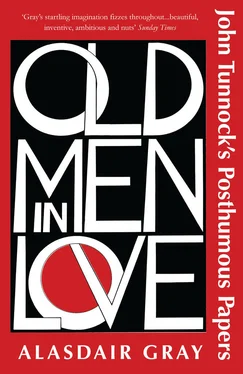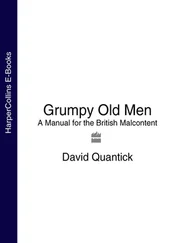“I’m sure this exercize is good for us,” Nell would murmur with a sigh as she came home heavily laden from a shopping expedition, and Nan would say sharply, “Of course! It keeps us young.”
They always referred to my mother as a superior being because she had earned her own living, and also (I think) because she had borne a child. After my first week’s work as a teacher Nan said, “Me and Nell would be two useless old women if we had not helped to educate a useful man.”
Like many Scots in those days they believed teachers, doctors and Labour politicians were the noblest works of God because such people (they believed) strove to reduce ignorance, suffering and poverty. Perhaps what kept them attending Hillhead Parish Church on Sundays was their belief that Jesus was a Socialist. In their childhood before World War I there were many Scottish Socialist Sunday schools for Protestant children; also John Wheatley, though denounced by Glasgow priests, ran a vigorous Young Men’s Socialist Catholic Society. The 1979 election of Margaret Thatcher and everything that followed astonished and worried them. I am sorry I disappointed them by never marrying, glad I never again shocked or disturbed them after the Doig affair.
Soon after that I was invited to attend a school debating society where I began voicing my aunts’ Socialist opinions, and was strongly opposed by an equally vocal Tory, Gordon MacLean. I was his social superior because my home was in a terrace house and his in a Byres Road tenement. He was my social superior because one of the school’s best athletes, and I so bad at games that the physical training teacher let me miss them. In other subjects our marks averaged out equal: he was better at maths, science, geography: I better at English, Latin, history, and we were equally bad at art and music. Our homes being near we started walking to and from school together, discussing books, films, sex but avoiding politics, which we only enjoyed discussing before an audience. Gordon, handsome and popular, had a complicated love life. Though not a boaster he liked telling me about it as much as I enjoyed hearing him. He even asked advice, which I was wise enough not to give, but I mentioned precedents for his troubles in the life of Burns, with relevant anecdotes from history and literature. He maybe found this flattering but I did not mean to flatter. His dealings with attractive girls fascinated me as much as anything I had read about, because they were real, and I knew great writers must study reality as well as books.
I was resigned to not directly knowing attractive girls. They terrified me, making speech with them impossible until I was old enough to be their father. In their presence I kept my self-respect by an aloofness suggesting (I hoped) that I was thinking of better things. This was easy for a boy whose manners had been formed by the example of nice old ladies, and whose main education was from books that had stored my mind with my grandfather’s furtive man-of-the-world knowledge. Once in the street I passed two good-looking, giggling school girls. One rushed after me and said, “John Tunnock, my pal fancies you rotten. In fact she’d like you to shag her!”
I said, “Tell her she’ll grow out of it.”
I could be friendly and at ease with girls who did not attract me, like those behind the counter of a Co-op grocery in Partick where I usually shopped. One day a new assistant, a small plump dark-haired girl, served me in a surprisingly unfriendly way, head bent to avoid seeing my face and never speaking a word. When I went there next week the other assistants shouted, “Terry! Here’s John,” and let her attend me. I could not imagine why. Her behaviour was still unfriendly. The fourth time this happened she suddenly raised her head and with the manner of someone flinging themselves off a cliff said, “What do you do in the evenings?”
I saw a round, pleasant, pleading face with lipstick not efficiently applied. I said, “Not much,” and rushed away trembling as if from an electric shock. Terry found me attractive! I tried bringing her image into erotic fantasies and failed. She was too real. For nearly a year I visited the Co-op meaning to ask her out to the Salon or Grosvenor and each time the shock of seeing her struck me dumber than she was. I could not imagine what I could say about Burns, Rabelais etcetera to her that would interest Terry. I would hand her a note of the items we wanted and before leaving with them would mutter, “Thanks.” One day when I entered someone shouted, “Terry, here’s John!” and she came over and served me in a straightforward friendly way, like the other assistants, but perhaps with a slight air of triumph. She had grown out of me, and was happy to show it. I knew I had missed an opportunity. Forty years passed before there was another, though something else may have delayed my maturity.
The Holiday Fellowship guest houses where we vacationed had originally been the country seats of minor aristocrats or rich Victorian merchants, the sort of country houses that after World War 2 the very rich kept wailing that they could no longer afford because the Welfare State was forcing them to pay iniquitous taxes. Nan told me that when Britain became truly Socialist under Harold Wilson (a prime minister in whom she had faith for nearly a year) every great country house would be run by the Holiday Fellowship as guest homes for The People or the elderly. I loved them for their large, unkempt, usually neglected gardens and big libraries of books, none published later than the middle thirties. I also liked the custom of the staff, who were usually young foreign girls, sharing the guests’ lounge, quiet room and outdoor excursions when they were not working. Younger guests liked helping waitresses and kitchen staff clear tables and wash and dry dishes after meals, a custom mostly enjoyed by young unmarried males, among whom I was always the youngest. At Minard Castle on Loch Fyne one summer I became sweet on a couple of lovely German girls. Leni was tall, slim and dark haired. Ute was plump, blonde and not much taller than me so I fancied her most, though I never met her apart from Leni. I later realized they encouraged my friendship as a way of avoiding older, more sexually knowing youths, but they certainly encouraged it. Their questions disclosed that I meant to be a writer and they saw nothing incredible in that. Leni started talking about Goethe which I thought remarkable, because I was sure no Scottish teenage girls liked great writers. I remember a sunny day when the three of us climbed Ben Nevis at the tail of a walking party. They asked questions about Scotland and my answers naturally led me to quote various verses by Burns that seemed to entertain them. More questions drew from me details of his private life, which Leni said showed he was a free spirit like Goethe, then Ute said, mischievously, “And your sex life, John?”
I felt we were talking like unusually friendly equals so said promptly, “It hardly exists. I only discovered the connection between sexual intercourse and birth a year or two ago through my affair with poor Doig.”
“An affair? With a poor dog ?” said Leni, grimacing incredulously.
“No! Dee — oh — eye — jee, Doig, a boy I knew.”
They wanted to hear about that so I told them. At the end both went into fits of laughter through which Ute said, “O you funny little boy!”
It would be wrong to say I felt she had slapped my face. I felt like someone happily using a band saw that in a split second takes off his hand. Shock would at first prevent pain, he would only feel astonished that his hand was lost for ever. My shock must have shown because at once Ute apologized, but the damage had been done. I turned and walked away downhill from these climbers so never saw the summit of Ben Nevis. I am told it is a rocky plateau, a field of boulders with patches of snow in odd nooks even in the hottest summers, and on a clear day like that one I could have seen every high summit between England and the Orkneys.
Читать дальше












